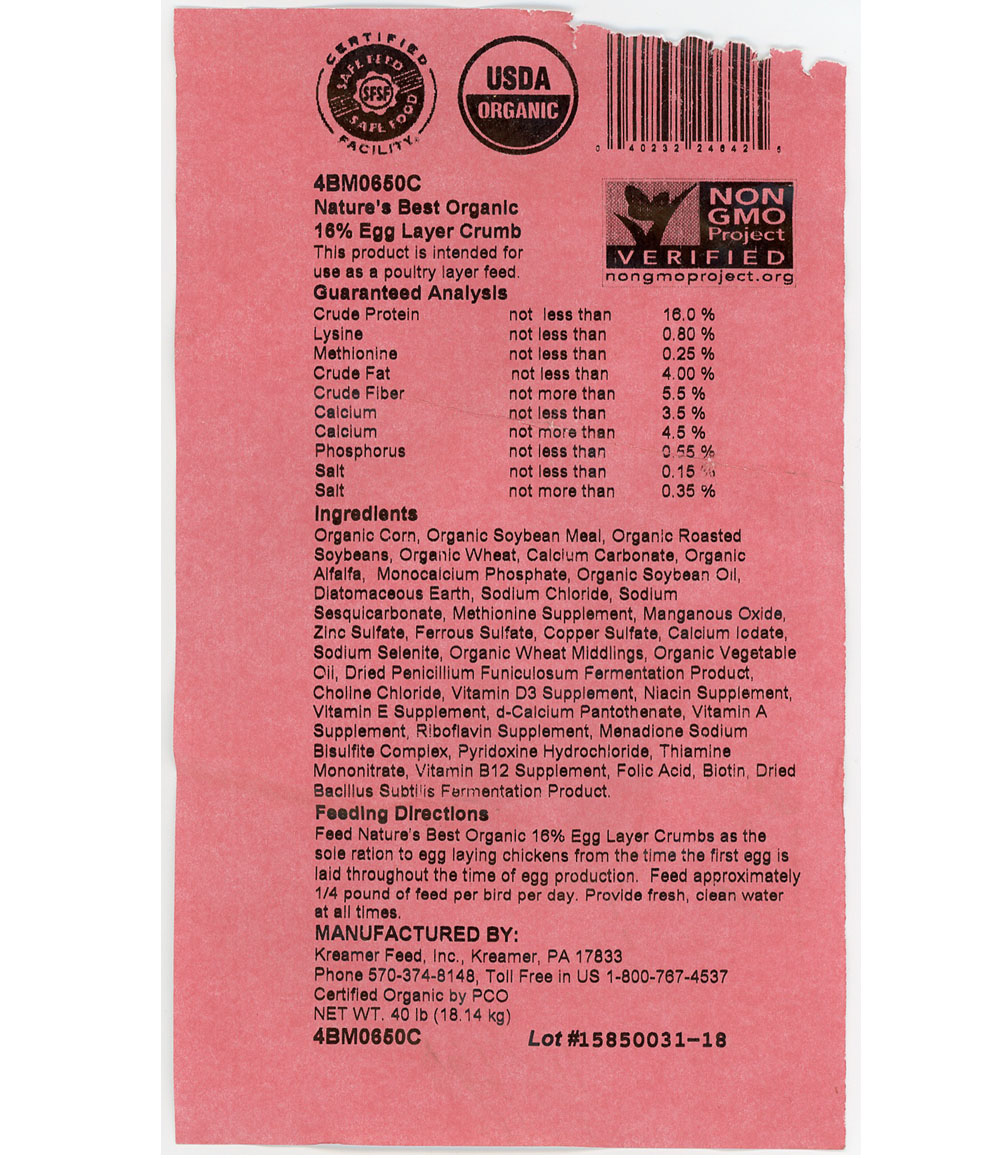There are many people who believe, ostensibly as a matter of science, that there is no nutritional or health advantage in organic foods. I beg to differ.
For years, I searched for organic chicken feed and couldn’t locate any. A horticulturist friend who helped with the search reported that a feed maker in Virginia said, “We could make organic chicken feed, but nobody would be able to afford to buy it.”
Then, a year ago, I discovered that Tractor Supply stores sell two types of organic chicken feed. I believe it was a relatively new product then, but I’m not sure when it became available. Last year’s new chickens also came from Tractor Supply. A sign near the baby-chicken area said that the chicks had been raised on organic feed. We continued to feed them organic baby feed until they were big enough for the adult laying mash. The abbey has never had a generation of such healthy, good-laying chickens.
It’s possible, of course, that it’s not just the organic ingredients that make the chickens thrive. It’s also possible that the feed is better and more expensively formulated, since it sells for twice the price of inorganic feeds. But here’s the thing. The abbey’s chickens never really used to like their inorganic feed. We tried several types. Always the chickens would pick through it, get the bits they wanted, and flick the rest on the ground for the voles to eat. I believe they wasted half their feed. It’s remarkable, but feeding the hens organic feed actually has ended up costing less, because they like the feed and don’t waste it. In particular, it was the corn in the inorganic feed that they didn’t like. That was certainly GMO corn. When the chickens were on inorganic feed, we also had a chronic problem with soft egg shells. Feeding the hens oyster shells helped. But the eggs shells on the organic feed are perfect — almost too strong — with no need for oyster shells as a supplement. There also are never any red spots in the eggs anymore, meaning, I’m sure, that their ovaries are healthy.
All four of last year’s new girls are going strong in spite of multiple unsuccessful hawk attacks. I’m hoping that the hawks will just learn to stay away, not least because I do my best to watch the chickens like a hawk.
All the chickens lay an egg a day. During a very cold spell in December, they slacked off a little. But after the weather warmed up they went right back to an egg a day. I give away the surplus eggs. They’re very much in demand. The girls have lots of pasture and get lots of greenery such as clover. Soon the new grass will be in. And of course all the abbey’s grounds are organically fertilized. So abbey eggs, for the last year, have been 100 percent organic. Even $8 organic, “free range” eggs from Whole Foods are nowhere near as good, with pale yolks and thinner shells. Every pound of organic food that comes in to feed the chickens ends up on the ground as chicken poop fertilizer. Year by year, the soils builds. I can’t imagine not having chickens.
The hen in the photo above, by the way, I call Fiona the Second. Like Fiona the First, who is now in chicken heaven, Fiona the Second is totally in love with me. She’s also the top chicken in the pecking order, though they never peck each other. I’m pretty sure that, when hens are not crowded and not stressed, they’re particularly nice to each other.












